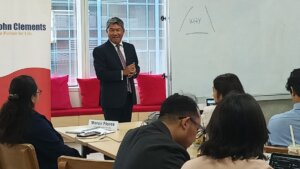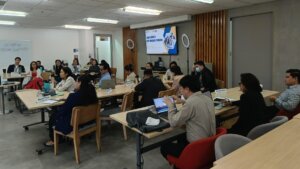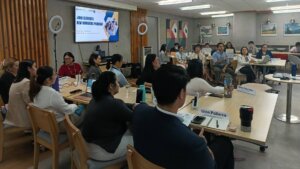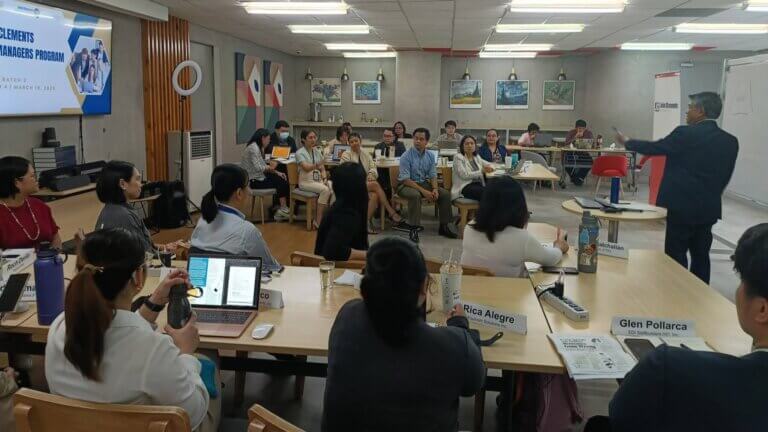Coaching is a powerful leadership tool that helps teams develop skills, build confidence, and take ownership of their growth. In the fourth session of the John Clements New Managers Program, we explored how coaching can be integrated into leadership to foster both individual and organizational success.
Beyond Mentorship: Coaching as a Leadership Skill
Before this session, I associated coaching more with mentorship, where the mentee takes the lead in seeking guidance. What I hadn’t fully considered was how coaching can be a proactive leadership approach—one that guides, develops, and empowers teams systematically.
At Khan Academy Philippines, where we work with educators and school administrators, coaching can be a game-changer in scaling impact and fostering autonomy. This session reinforced that coaching isn’t just about giving advice—it’s about guiding team members toward their own insights and solutions.
The GROW Model: A Practical Framework for Coaching
One of the most valuable takeaways was the GROW model, a structured approach to coaching conversations:
- Goal – Define what success looks like.
- Reality – Understand the current situation and challenges.
- Options – Explore possible solutions.
- Will – Establish a concrete action plan.

While the model is simple in theory, applying it in real coaching conversations is more nuanced. During our mock coaching exercises, I realized that structured frameworks are helpful, but real conversations require adaptability, deep listening, and knowing when to step back and let the other person process.
Another framework we explored involved reframing challenges and identifying triggers to help individuals build self-awareness. This reinforced that coaching is about more than just solving problems—it’s about long-term mindset shifts and leadership development.
Situational Leadership: Coaching & Delegation for Team Growth
One of the most valuable discussions was on Situational Leadership, which categorizes employees based on their competence (skill level) and willingness (motivation or confidence) to take on tasks:
- High Competence, High Willingness (Delegating) – Can take full ownership with minimal guidance.
- High Competence, Low Willingness (Supporting/Encouraging) – Needs motivation or reinforcement rather than technical guidance.
- Low Competence, High Willingness (Coaching/Guiding) – Eager but need structured training and feedback.
- Low Competence, Low Willingness (Directing/Supervising) – Requires clear instructions and close supervision.

What stood out to me was that employees don’t fit into one category all the time—they may need coaching in one area but full autonomy in another. As a leader, this challenged me to think about how I can adapt my coaching and delegation style based on the context.
Challenges & Next Steps: Integrating Coaching into My Leadership Style
One of the biggest challenges with coaching is finding the time to do it intentionally. My weekly one-on-one meetings often focus on updates and problem-solving, leaving little room for structured development conversations. However, this session reinforced that coaching shouldn’t be an afterthought—it should be a core leadership habit.
Moving forward, I plan to:
- Be more intentional about integrating coaching into my leadership style, ensuring that development conversations are a regular part of my team interactions.
- Leverage the GROW model to make coaching conversations more structured and action-oriented.
- Use Situational Leadership principles to adapt my coaching and delegation approach based on each team member’s needs.

This session reinforced that coaching is not just about individual growth—it’s about creating a culture of continuous learning and leadership. As I continue my journey in the John Clements New Managers Program, I’m excited to refine my coaching approach and help my team succeed.
Ready to Elevate Your Coaching Skills?
Discover how structured coaching frameworks like GROW and situational leadership can transform your team. The John Clements New Managers Program equips emerging leaders with practical, high-impact coaching strategies.
Want to bring these insights to your organization? Contact us to find out how.





